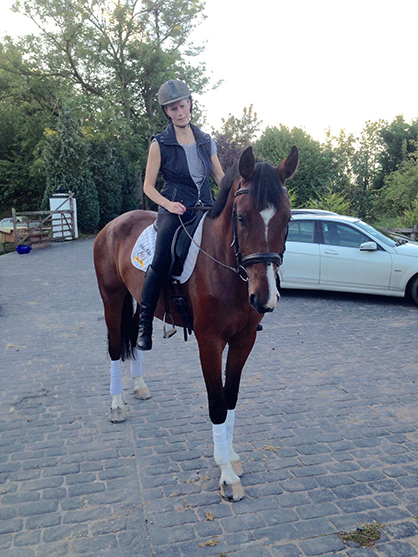“Tales From the NICU,” A Day in the Life of a Neonatal Vet- March 3rd
February 17, 2015 Comments Off on “Tales From the NICU,” A Day in the Life of a Neonatal Vet- March 3rd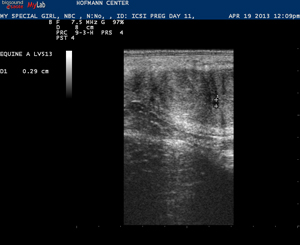
Setlakwe will describe what caring for these sick neonates entails, including intensive care of ‘mattress’ and ‘dummy’ foals; high-risk pregnancy monitoring of pygmy goats; and treatment of crias that develop severe infections shortly after birth. Get a glimpse of what a “typical” day might be for a NICU veterinarian.
Continue reading …The Horse With a Heart a Few Sizes Too Big…
February 13, 2015 Comments Off on The Horse With a Heart a Few Sizes Too Big…
Windsor, foaled in England, is a 12-year-old gelding that weighs more than 2,200 pounds and stands more than 18 hands high. “He’s huge,” Reef said.
Continue reading …Unique Pool Recovery System Helps Horses Wake Up From Anesthesia
February 10, 2015 Comments Off on Unique Pool Recovery System Helps Horses Wake Up From Anesthesia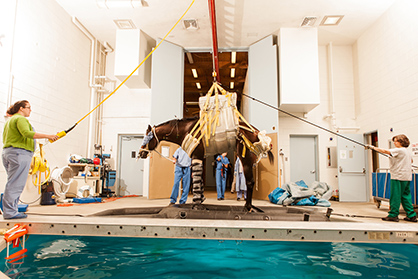
“Waking up from anesthesia in the pool gives horses a chance to safely recover their strength, coordination, and awareness, and that provides a much better chance for them to recover without injury.”
Continue reading …Core Strengthening Exercises… For Your Horse!
February 5, 2015 Comments Off on Core Strengthening Exercises… For Your Horse!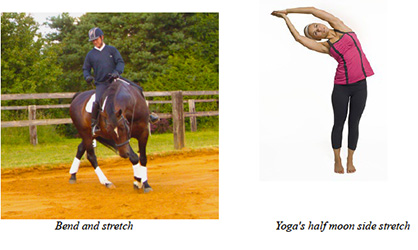
Below are four introductory exercises that look quite simple, and in a sense they are, yet they will produce a noticeable improvement in the horse’s willingness to flex through the spine.
Continue reading …Fascinating Research Shows Newborn Foals May Offer Clues to Autism
February 4, 2015 Comments Off on Fascinating Research Shows Newborn Foals May Offer Clues to Autism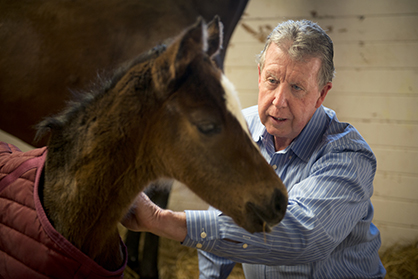
“The concept that a disruption in the transition of fetal consciousness may be related to children with autism is intriguing,” said Pessah.
Continue reading …Wanting to Learn More About Western Dressage? Here’s Your Chance
February 3, 2015 Comments Off on Wanting to Learn More About Western Dressage? Here’s Your Chance
The Western Dressage Week begins March 11 with a four day all inclusive clinic at the beautiful Fox Grove Farm in Ocala. Sunday morning riders can test their skills in the first in a series of five Western Dressage Association of Florida qualified shows. Monday and Tuesday, March 16-17 brings the Discover Western Dressage Symposium which is 2 days of classroom sessions and live demonstrations designed for the professional judge, trainer, coach and competitor.
Continue reading …Vets Concerned About Social Media “Hate Campaign” Against Hendra Vaccine
February 2, 2015 Comments Off on Vets Concerned About Social Media “Hate Campaign” Against Hendra Vaccine
Equine veterinarians are very concerned that recent commentary about the safety of the Hendra vaccine is not based on fact and may be misleading horse owners in high-risk areas.
Continue reading …Seeking Horses For Laminitis Research Trial
January 30, 2015 Comments Off on Seeking Horses For Laminitis Research Trial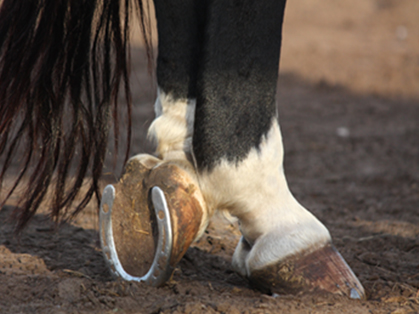
Nouvelle Veterinary Research, Inc. is conducting a laminitis research trial and is seeking equine candidates local to the North Carolina or surrounding area.
Continue reading …








